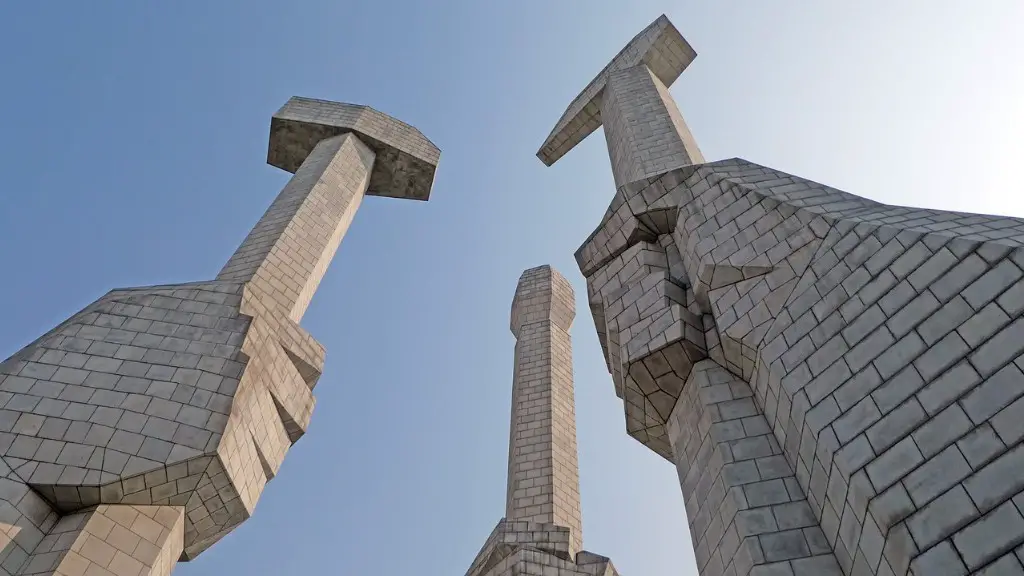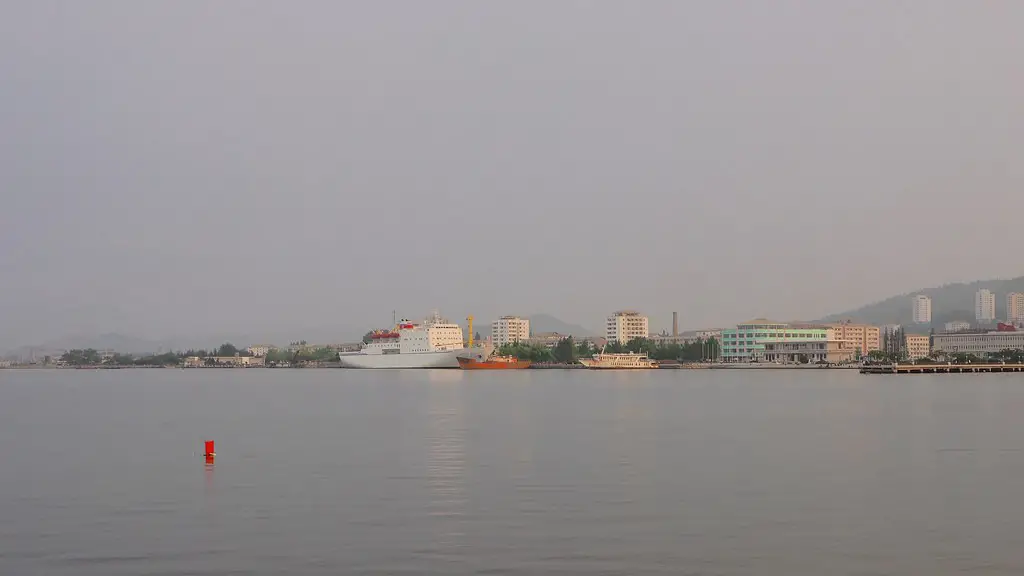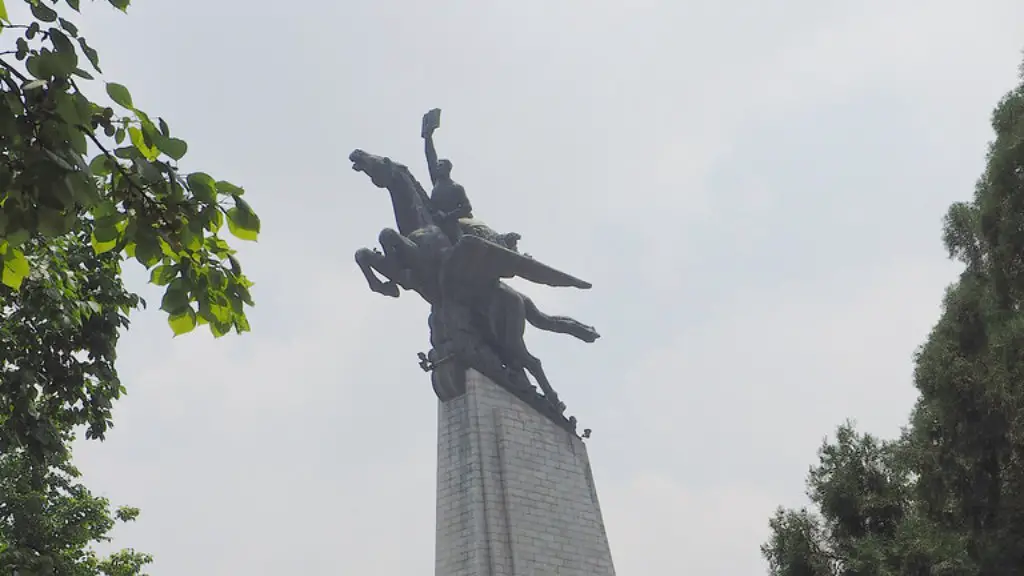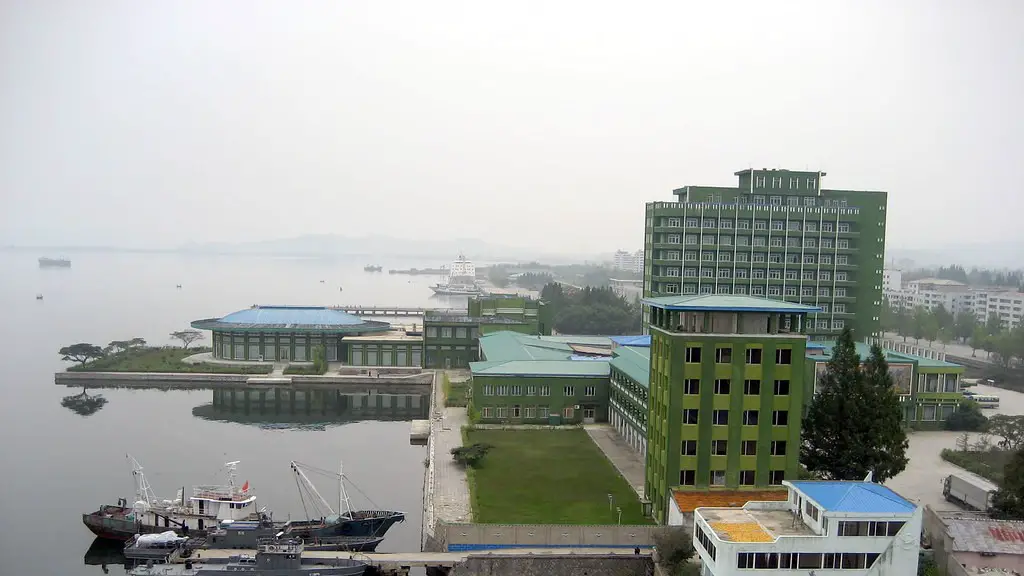Background Information
Tensions between North Korea and the United States have been steadily increasing in recent months as North Korea continues to build its nuclear arsenal. The US has been considering an attack as a serious option for dealing with North Korea’s growing nuclear capabilities. North Korea responded to US threats of attack with its own threats, claiming that any military action taken against the hermit kingdom would result in a “sea of fire” – an all out nuclear war. The US has also been exerting pressure on China, North Korea’s only ally and trading partner, to take action to curb North Korean nuclear ambitions.
In recent weeks there have been increasing reports of US military deployments to the Korean Peninsula as part of military exercises with South Korea, further ramping up the tensions between the US and North Korea. The recent rhetoric has been increasingly aggressive, with both sides vowing not to back down in the face of a potential conflict. As the situation escalates, there are growing fears of an all out nuclear war in the region.
Data and Perspectives
The major concerns among experts is the potential human cost that a war with North Korea could have. It is estimated that a full-scale war with North Korea could result in as many as one million deaths during the first few weeks. This number would likely rise as the conflict dragged on, further exacerbating the humanitarian crisis that would inevitably follow. In addition, the Korean Peninsula has been home to nuclear testing for years and the potential environmental catastrophe associated with a full scale nuclear war is alarming.
Furthermore, experts caution that a US attack on North Korea could have far reaching implications for the entire region and even the world. North Korea has made alliances with China and Russia, both of which could choose to intervene in support of North Korea if the US takes military action. This could lead to a broader conflict that could quickly spiral out of control.
In addition, experts fear that the use of nuclear weapons in a conflict between the US and North Korea could have devastating consequences and could potentially even trigger a global nuclear arms race. With more nations becoming nuclear powers, the risk of all out nuclear war is even greater.
Insights and Analysis
Given the potential consequences of a war with North Korea, time and diplomatic efforts must be taken to ensure that a nuclear conflict can be avoided. The US must be careful not to alienate North Korea with its rhetoric and instead must look for diplomatic solutions to the growing problem. This could include negotiations with North Korea as well as sanctions if necessary. The US must also look for ways to de-escalate the tensions in the region and work with North Korea’s allies to find a peaceful resolution to the conflict.
Furthermore, the US must be careful not to take unilateral action against North Korea and instead must consider the potential consequences of such an action. Any military action taken by the US must be taken in concert with its allies and with the support of the international community. Only with a unified voice will the US be able to ensure that the conflict is resolved peacefully.
Finally, the US must be mindful of the potential human cost of any conflict with North Korea and must look for ways to minimize the suffering that would inevitably follow. The US must be willing to provide humanitarian aid to those affected by any violence and must take the necessary steps to ensure that a war with North Korea can be avoided.
International Pressure
In addition to the need for diplomatic efforts, experts also point to the importance of international pressure in order to prevent a conflict with North Korea. The United Nations and other international organizations have been working to increase pressure on North Korea to abandon its nuclear ambitions. This includes sanctions against North Korea as well as increased monitoring of North Korean activities.
Critics of this approach argue that international pressure could only go so far and that North Korea is unlikely to abandon its nuclear program in the face of such pressure. However, experts point to the fact that North Korea has recently sought to open up diplomatic channels and has engaged in dialogue with its adversaries in the past, showing that the hermit kingdom is not completely impervious to international pressure.
The international community must be willing to work together and put pressure on North Korea to abandon its nuclear program. Only with the combined efforts of the international community can a peaceful solution be found.
China’s Role
China has played an integral role in the current crisis. As North Korea’s only real ally, China has been in a unique position to influence North Korean decision making. North Korea has historically looked to China for support and has taken into account Chinese opinion in its actions. China has in turn sought to use its influence over North Korea to de-escalate the tensions between the US and North Korea.
In recent weeks, China has increased its efforts to convince North Korea to abandon its nuclear ambitions. China has also stepped up its monitoring of North Korean activities and has worked to provide humanitarian aid to the people of North Korea. This shows that China is taking a more active role in the region.
By leveraging its influence over North Korea, China could potentially be instrumental in de-escalating the tensions in the region and preventing a conflict with the US. China must be willing to work with the US and North Korea in order to find a diplomatic solution to the crisis.
India’s Role
India has also been in a position to influence North Korea’s decision making. India and North Korea have had long-standing ties and India has been seeking to use these ties to influence North Korean actions. India has maintained a cautious approach to the tensions between the US and North Korea and has sought to encourage a peaceful resolution to the crisis.
India has increased its diplomatic and military presence in the region in recent months in order to better monitor the situation and to provide assistance should it be needed. India has also been exerting pressure on North Korea to abandon its nuclear ambitions and has been looking for ways to de-escalate the tensions between the US and North Korea. India has also been working to provide humanitarian aid to the people of North Korea.
India could be instrumental in finding a peaceful solution to the current crisis and must be willing to work with the US and North Korea in order to do so. India must be willing to take an active role in the negotiations and use its influence over North Korea to ensure that a peaceful resolution is found.
A Perspective from the Korean Peninsula
The people of the Korean Peninsula have been under increasing strain as tensions between the US and North Korea continue to escalate. The people of the Korean Peninsula are fearful of the potential for an all out military conflict and many are looking for ways to protect themselves and their families in the event of a war. As a result, the people of the Korean Peninsula have been working together in an effort to maintain peace and prevent a conflict from breaking out.
Local organizations have been formed to support those in need and to provide assistance to those affected by the escalating tensions. In addition, these organizations have been providing resources to educate the people of the Korean Peninsula and to keep them informed of the situation on the ground. They have been campaigning tirelessly to keep the peace and to ensure a peaceful resolution to the current crisis.
The people of the Korean Peninsula have been at the forefront of the effort to prevent a conflict with North Korea and must continue to work together in order to find a peaceful solution. By speaking out, they can ensure that their voices are heard and that their efforts to maintain peace are not in vain.





